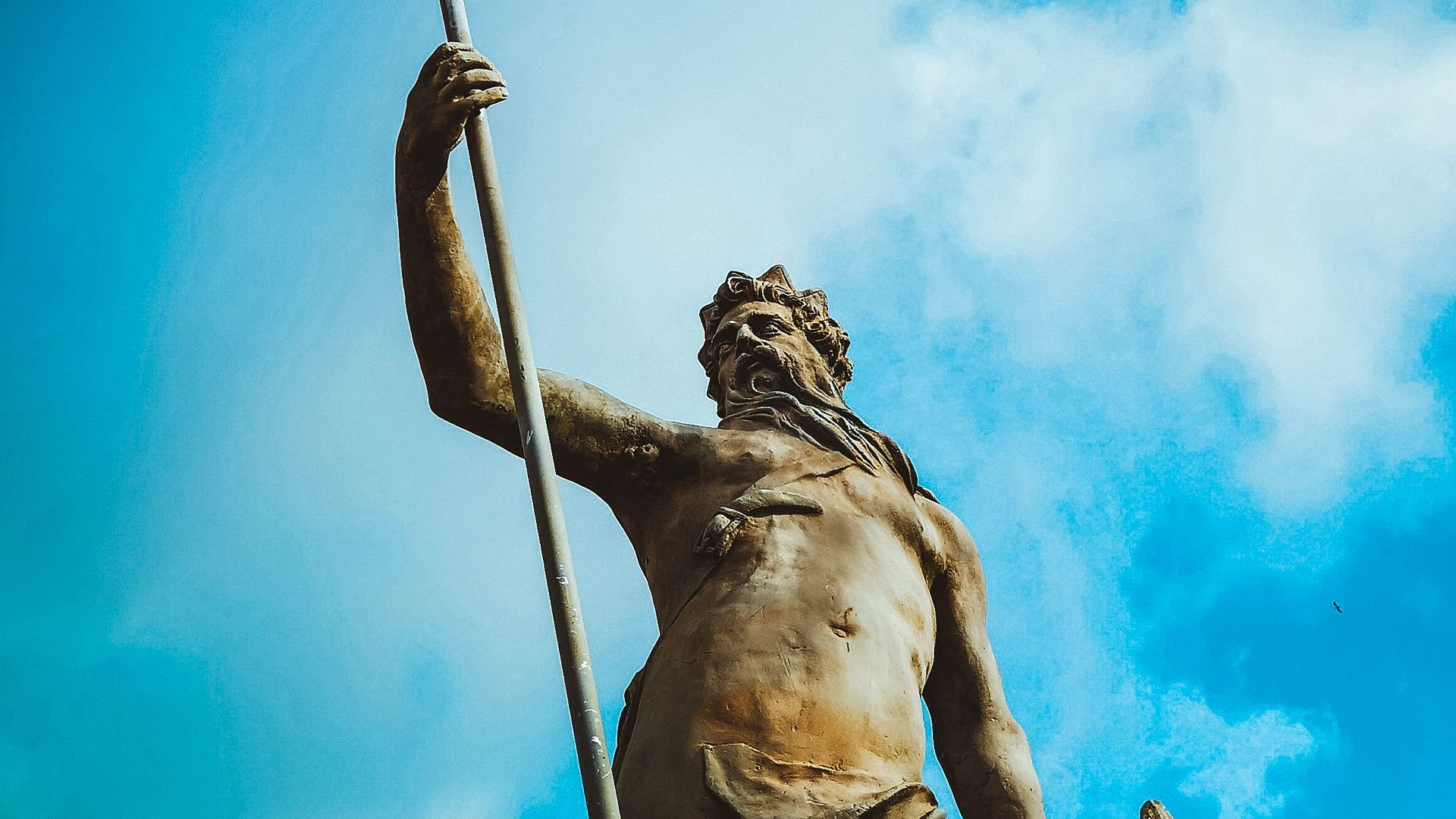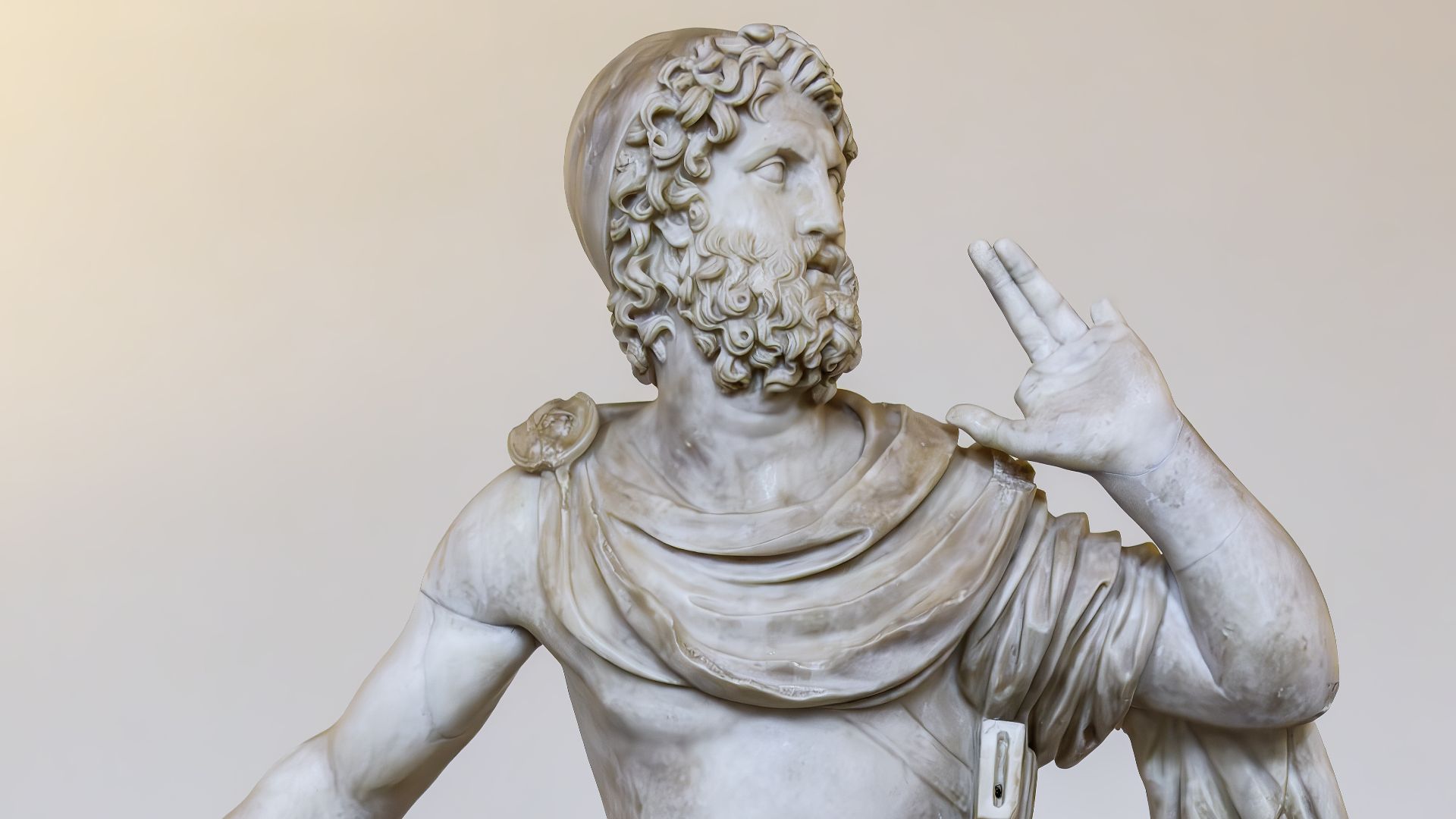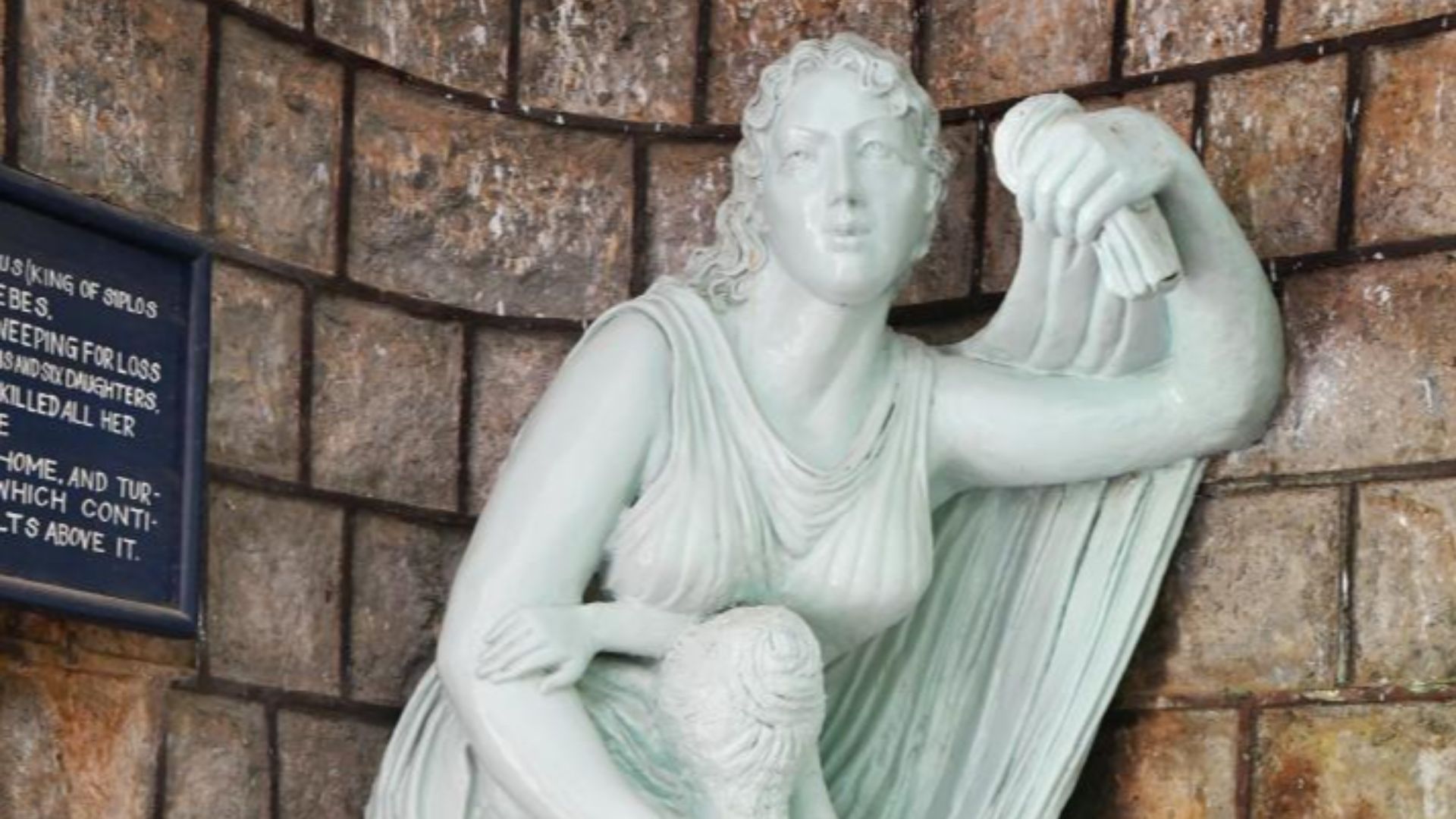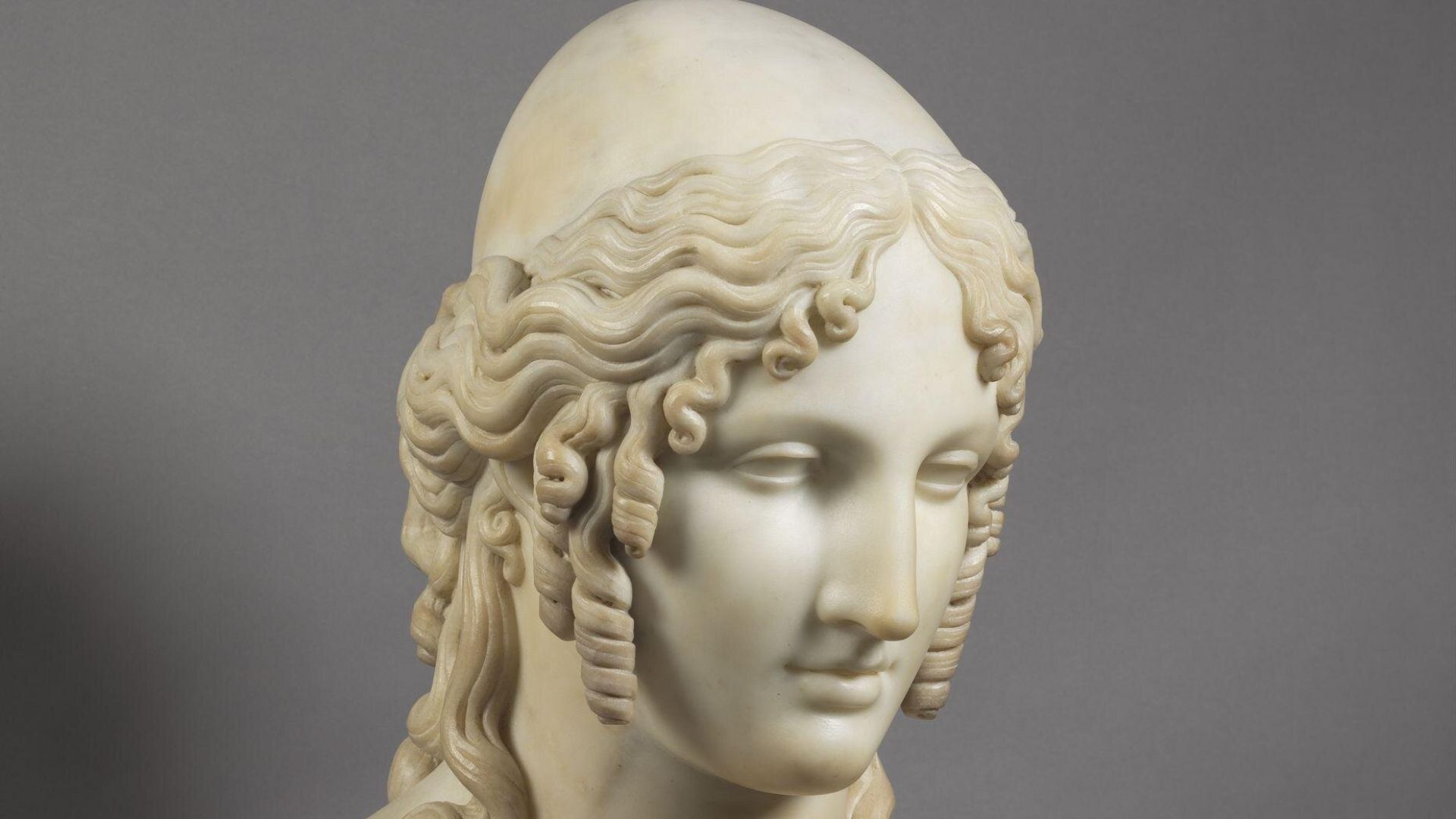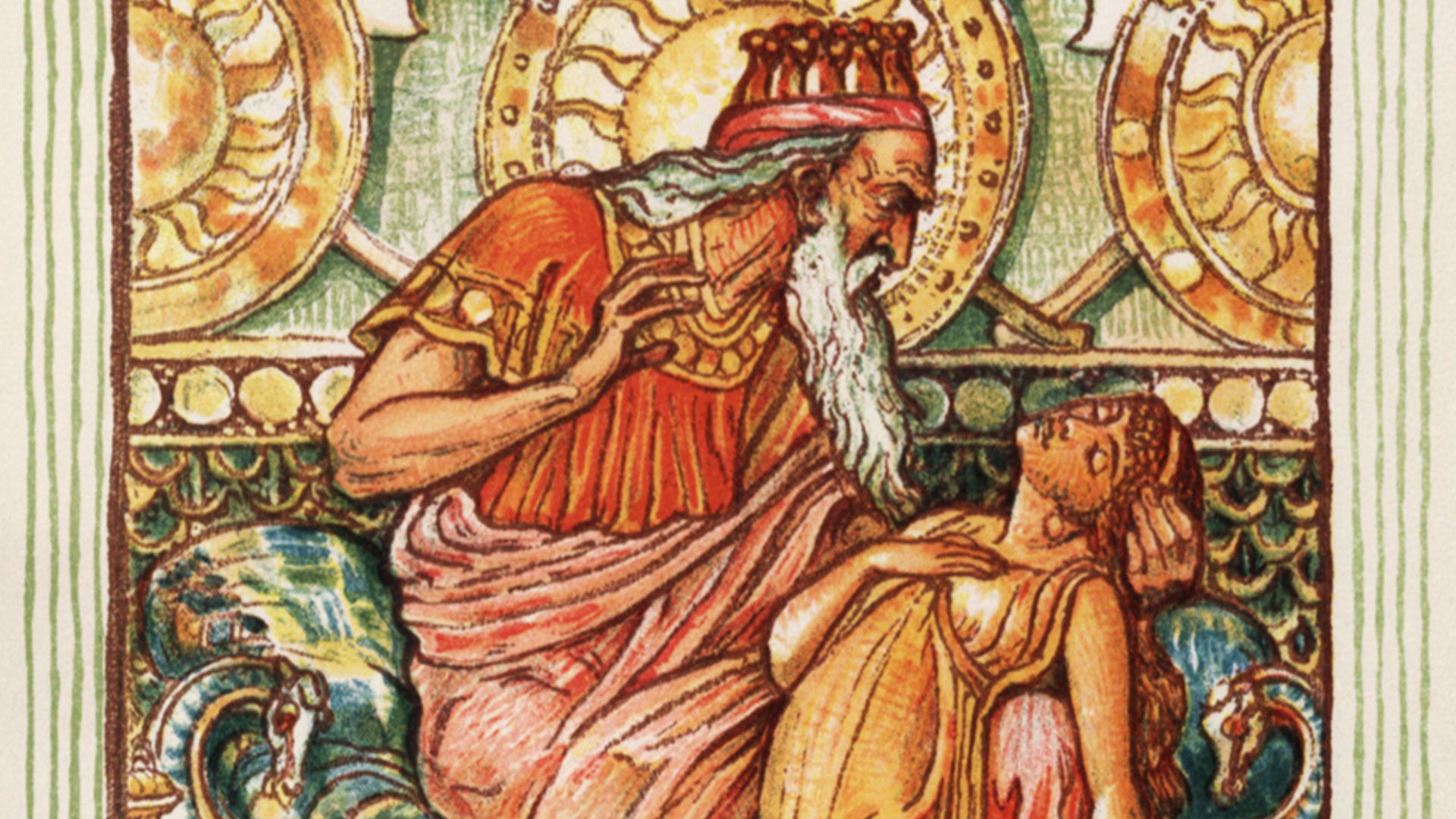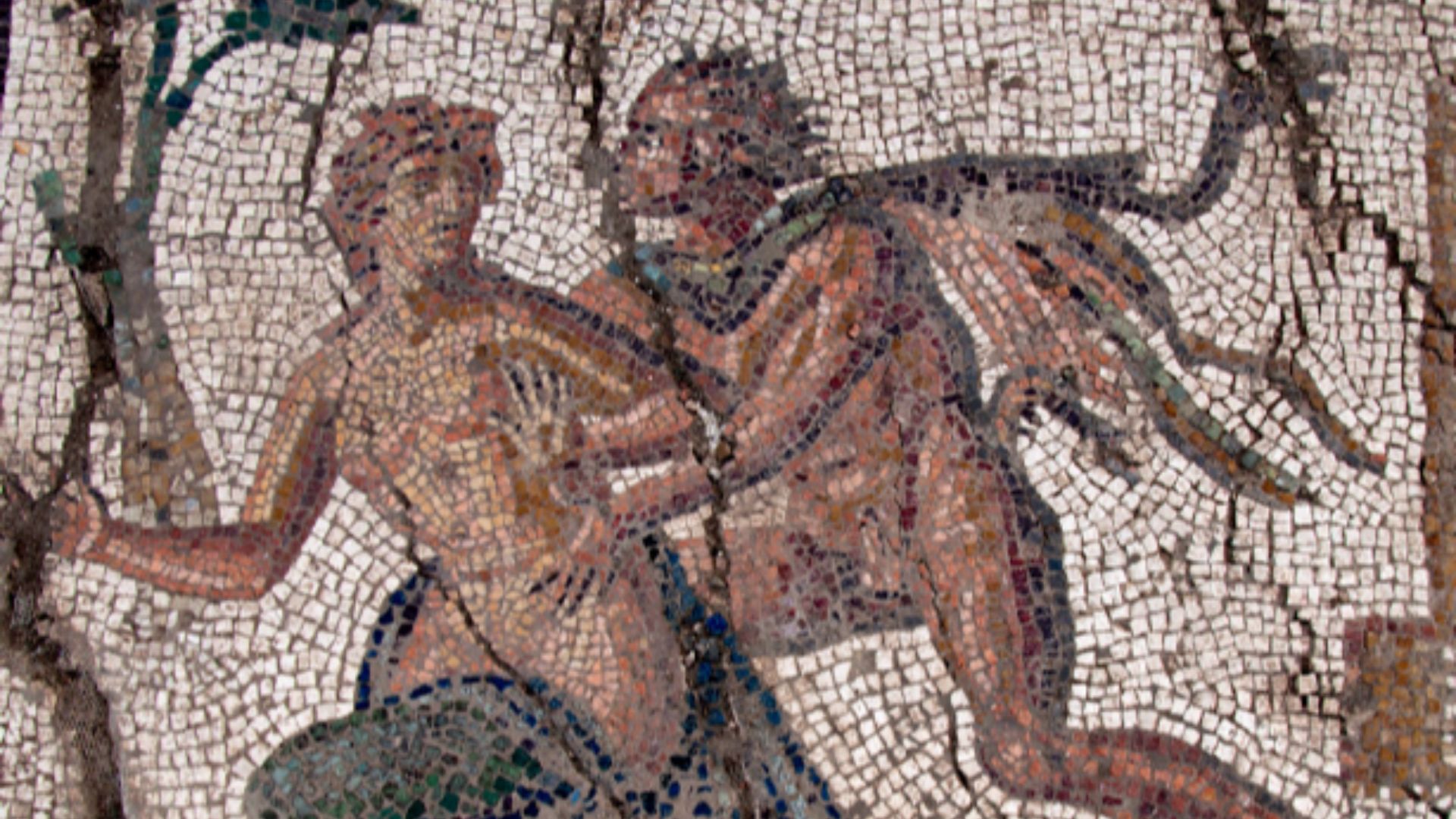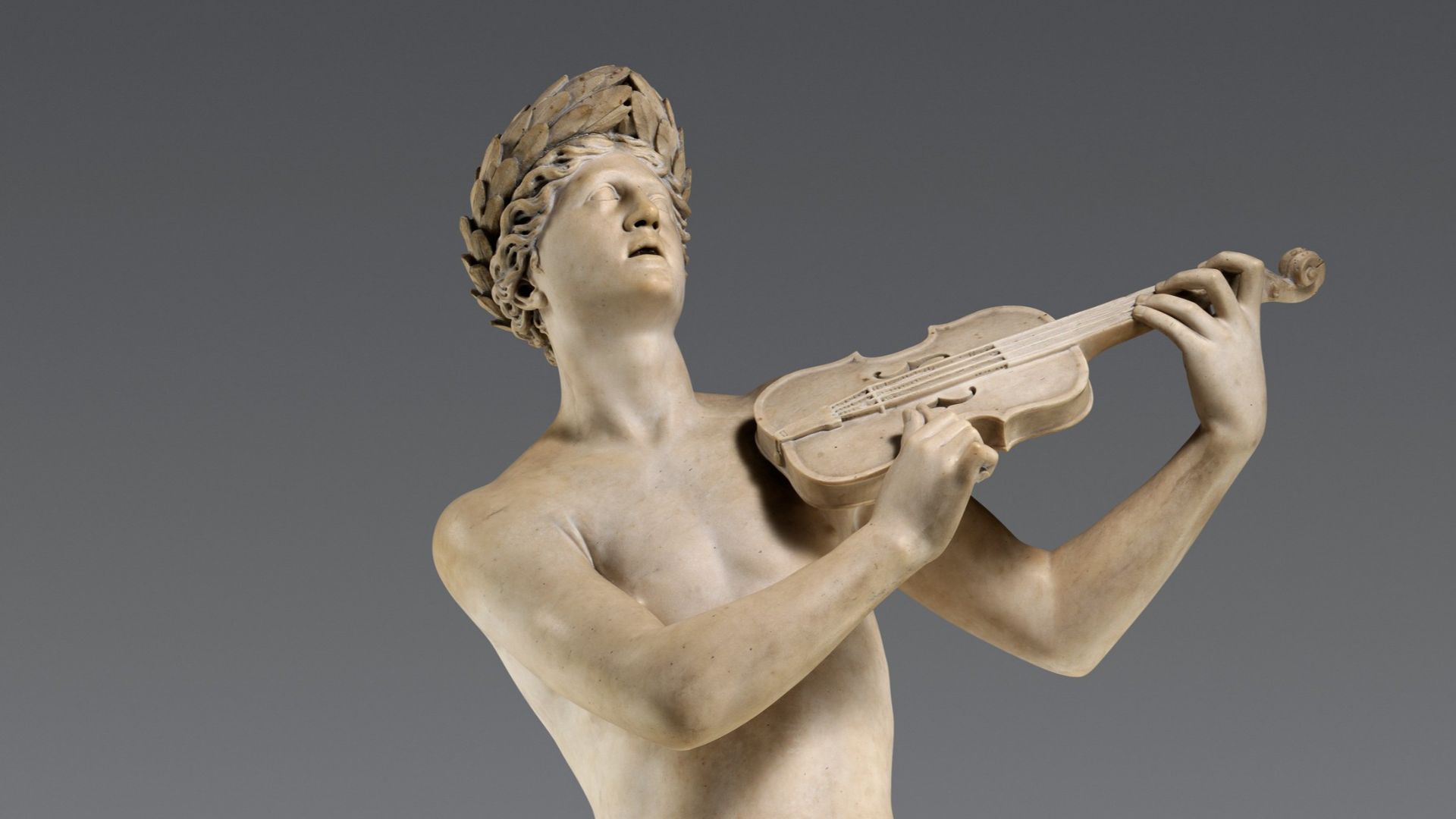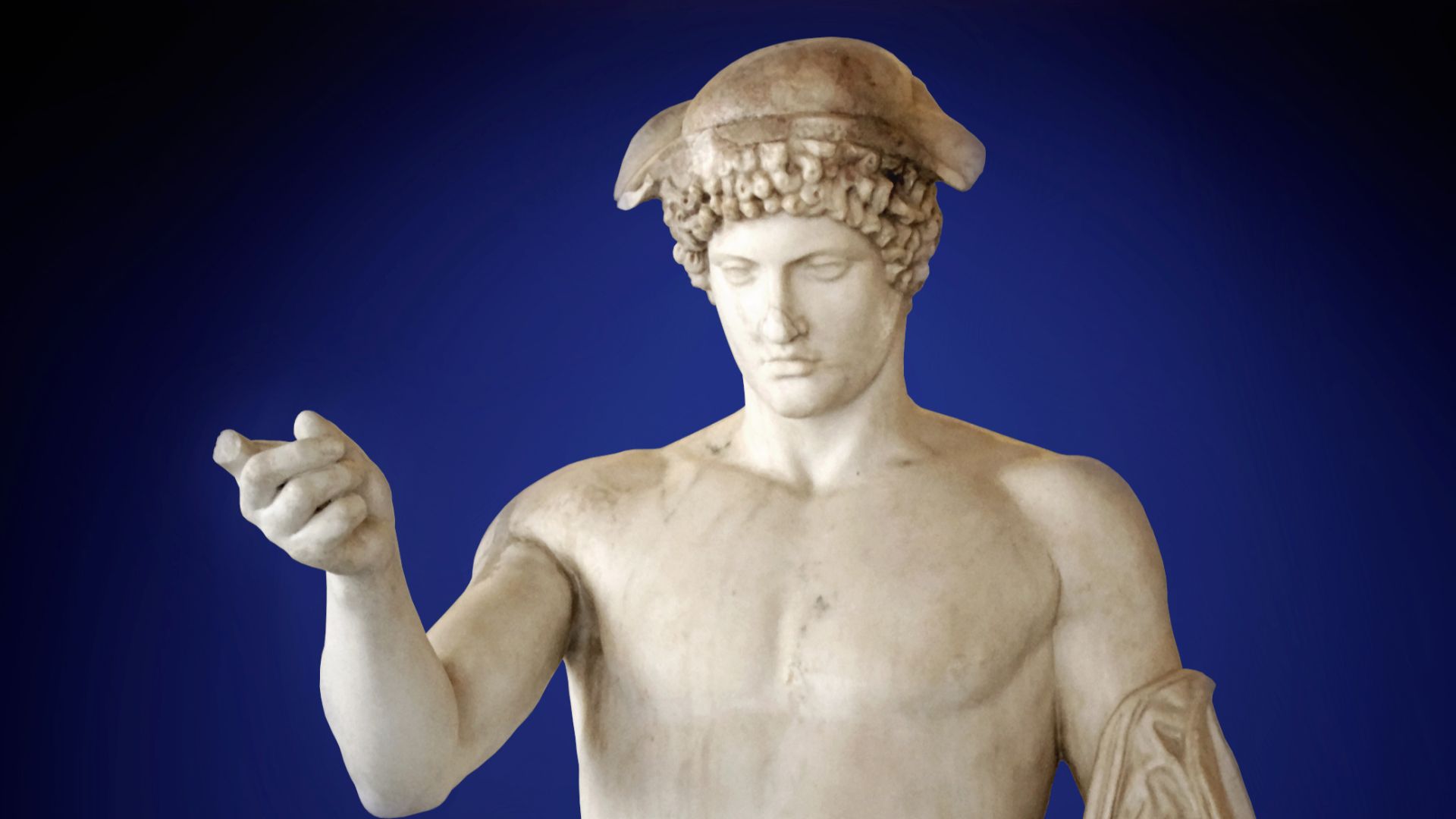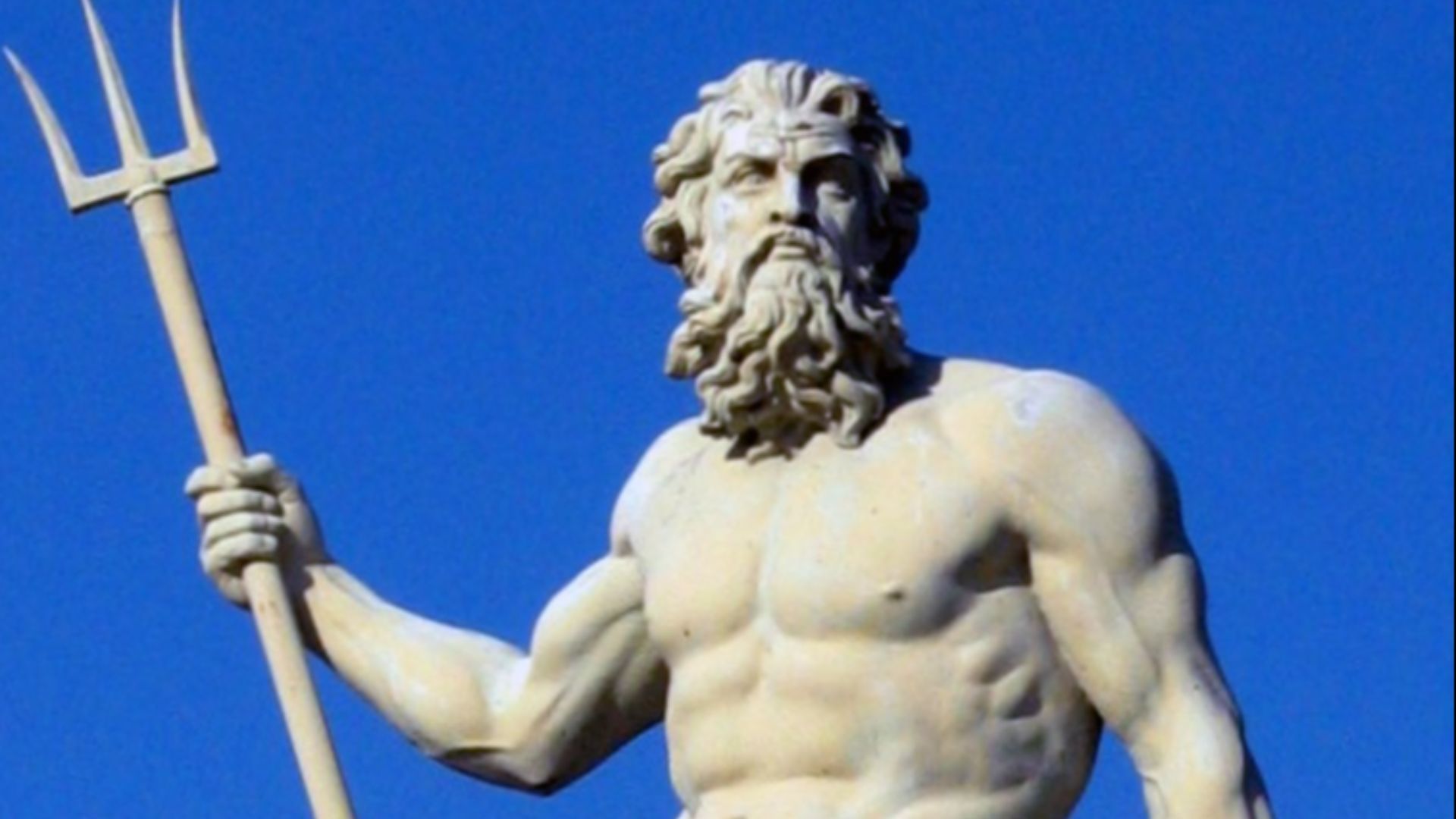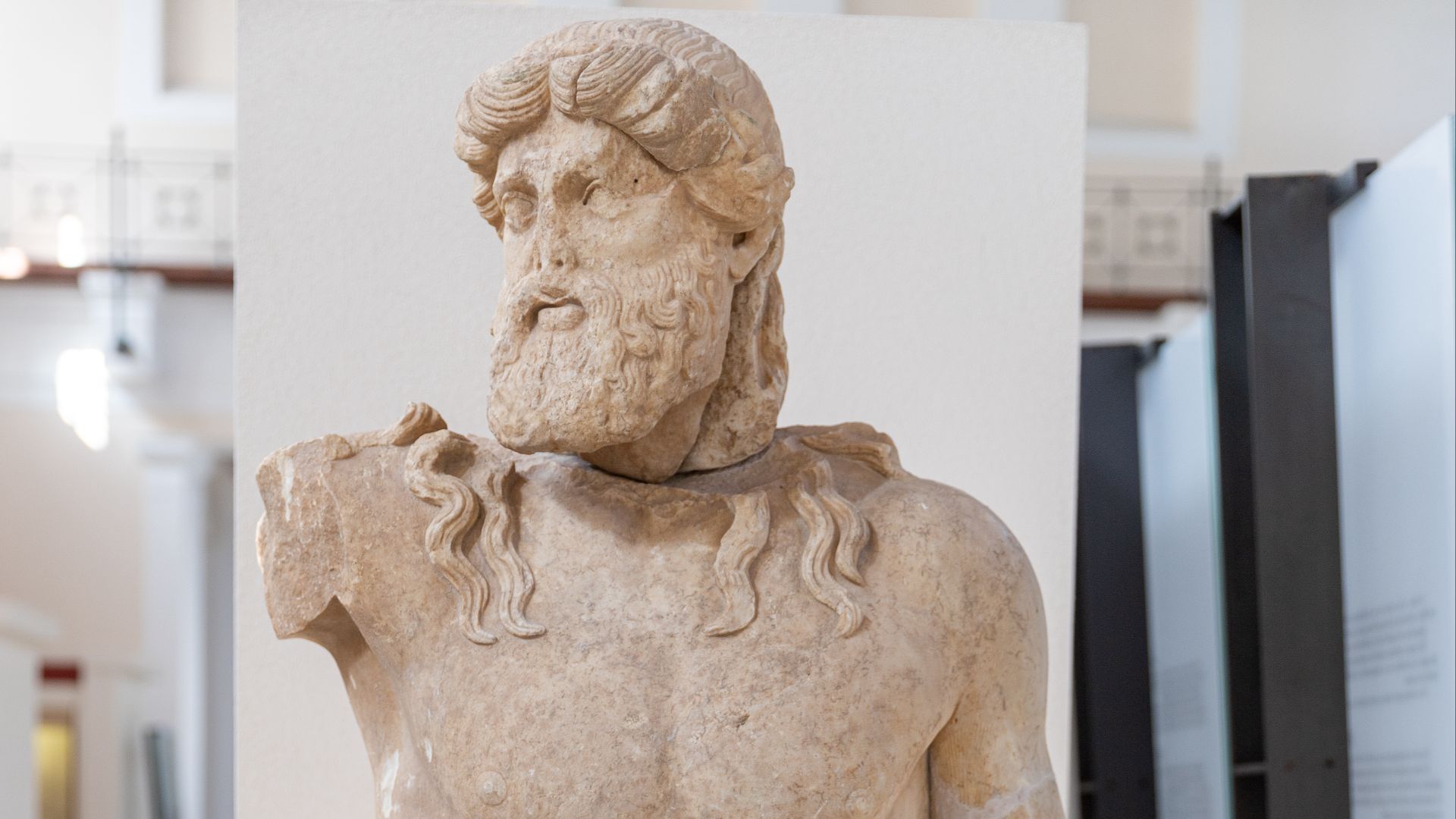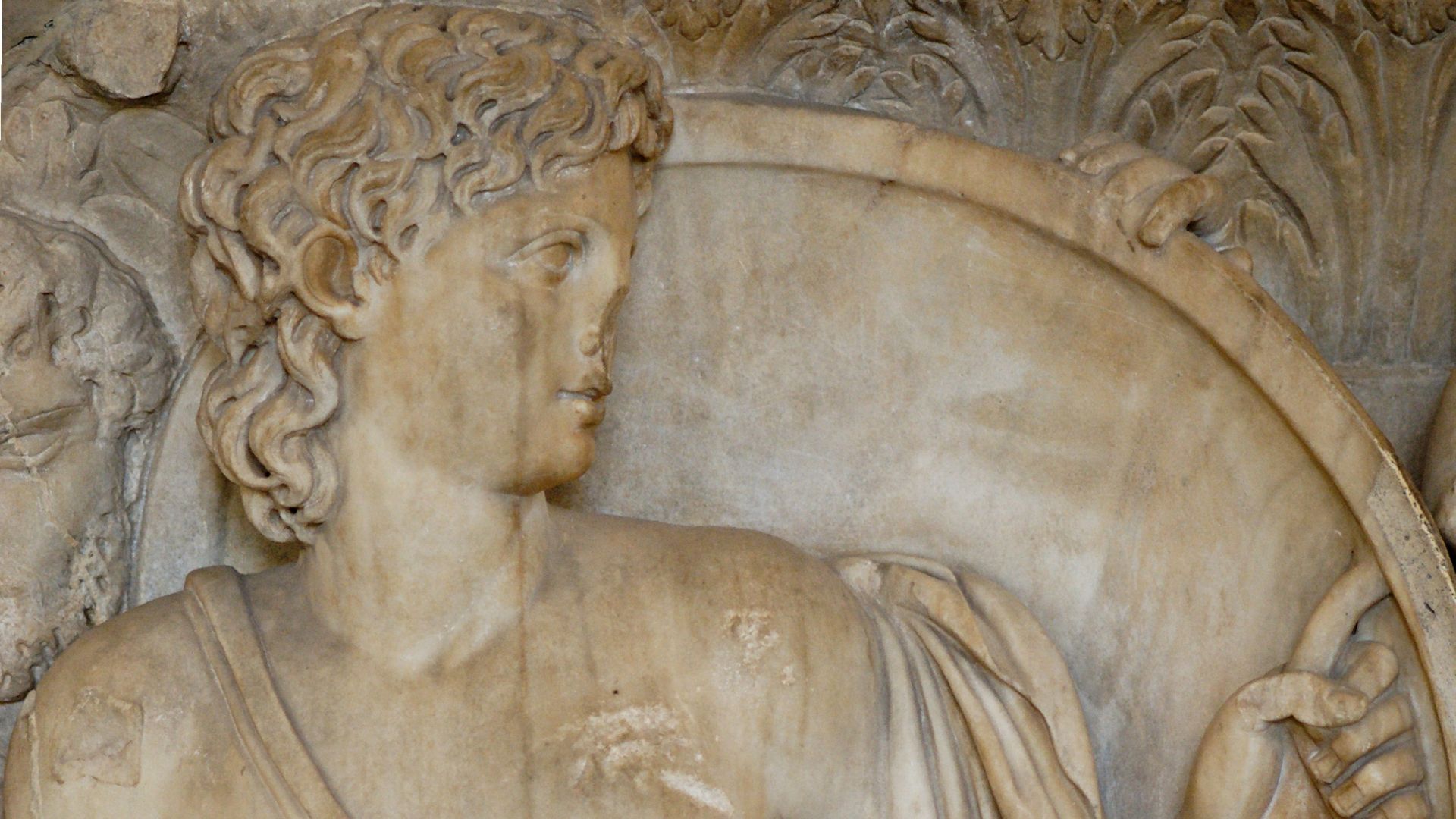Legends, Lessons, and Divine Drama
Greek myths are full of monsters, gods, impossible quests, and—if you look past the drama—lessons. These lessons are not your daily garden variety, but the kind of profound epiphanies you recognize as applying in your own life even if you’ve never wrestled a hydra. There’s something deeply human in the way the Greeks wrapped wisdom in spectacle. The gods weren’t perfect; they were anything but. Although vain, petty, and unpredictable, they served as magnified versions of our own fallible characters. Greek myths weren’t subtle about their lessons: they spelled them out in bold plot points, with people turned to stone, cities burned, fleets drowned. But maybe that’s the point. You don’t forget a moral when it’s tied to a tragedy significant enough to upend the world.
1. Hubris Will Get You Burned
If you’re Icarus, this applies literally. Wax wings, hot sun, splash. It’s not that ambition is bad in itself, it’s rather a cautionary tale against unfettered determination lacking discernment. We’ve all seen it—someone overreaches without adequate preparation, and their fall from grace feels inevitable in hindsight.
2. Promises Matter
Theseus, the Athenian hero, volunteered to sail to Crete to slay the Minotaur. Before he left, he promised his father that he would signal his success or failure with a changing of the sails on his return. Black would mean his death, white would mean victory. Whether through negligence or distraction, Theseus forgot to change the flags to white. When his father saw the black sails in the distance, the grief-stricken man threw himself from the cliffs.
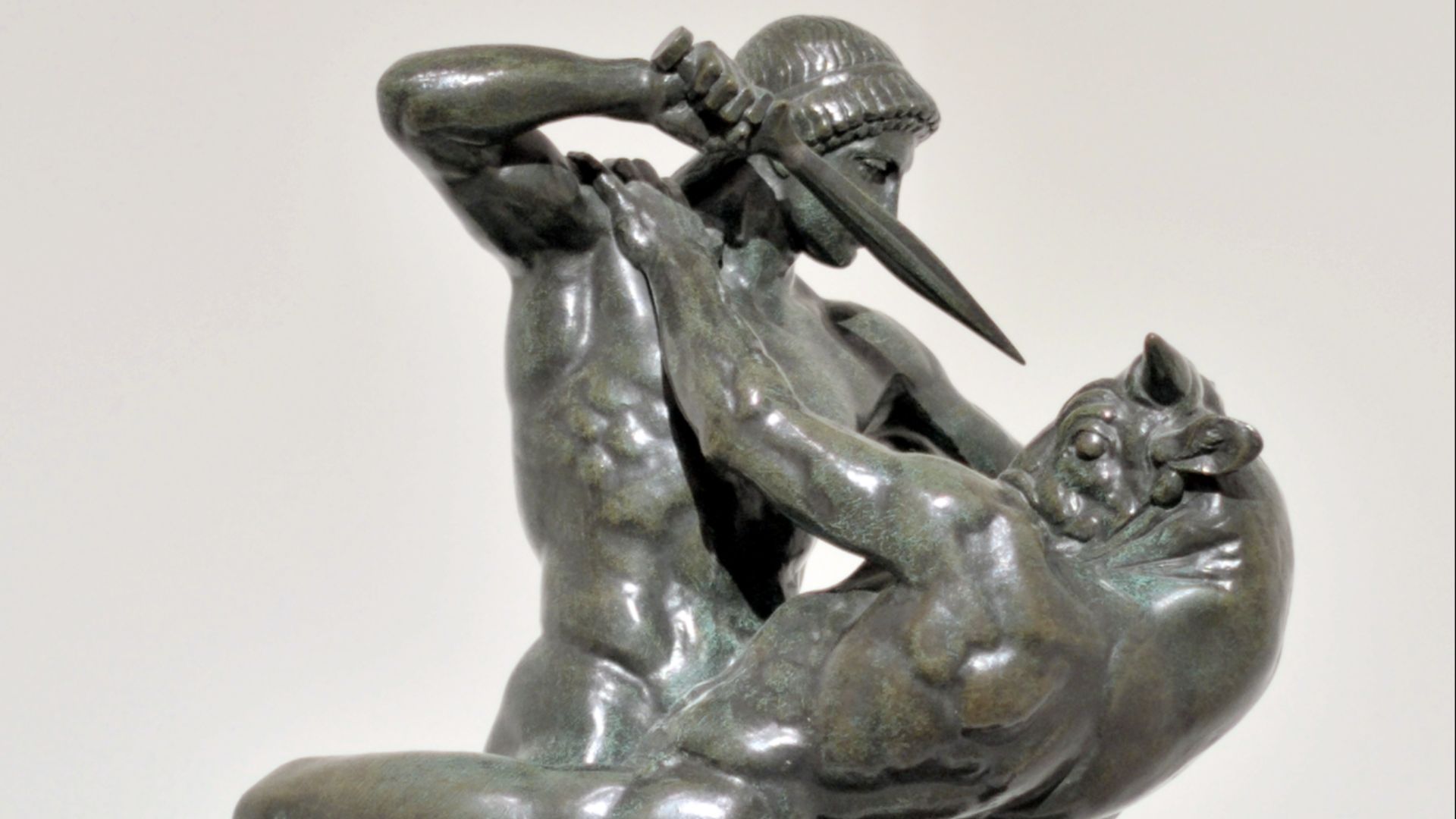 Alexey V. Kurochkin on Wikimedia
Alexey V. Kurochkin on Wikimedia
3. Don’t Underestimate Cleverness
Odysseus, the cunning king of Ithaca, didn’t help win the Trojan war by being the biggest or strongest but by being the cleverest. The Trojan Horse was his idea and helped the Greeks penetrate the high walls of Troy without firing a single arrow. Sometimes the puzzle-solver beats the sword-swinger.
4. Respect the Boundaries Between Mortal and Divine
Niobe, a queen of Thebes, mocked the goddess Leto (mother of Apollo and Artemis), for having fewer children than she did. This didn’t end well, and in retaliation, Leto had Niobe’s many children slain. There’s a moral here about acknowledging your stature and of choosing to be humble in the face of something bigger than you—whether that’s a god or simply someone of higher stature than yourself.
5. Love Can be Destructive
This principle is best captured in the illicit romance between Helen of Troy, Paris, and the decade-long bloodbath that followed Paris stealing her away from Menelaus, king of Sparta. The Greeks knew passion wasn’t always a harmless affair; sometimes choosing the wrong partner could result in siege towers battering your gates.
6. Curiosity Comes with A Price
Pandora opened the box, releasing all the evils that now plague us in the world. We all indulge that instinct occasionally—clicking the suspicious email link or reading the text we shouldn’t. This myth reminds us that oftentimes the consequence of our curiosity can’t be undone. It’s worth remembering that hope was in there too.
 Walter Crane (1845-1915) on Wikimedia
Walter Crane (1845-1915) on Wikimedia
7. You Can’t Cheat Fate
Doomed by a prophecy to kill his father and marry his mother, Oedipus’s parents tried to avoid this coming to pass by abandoning him on Mount Cithaeron as a newborn. Fate still won though a series of unlikely events. The Greeks were fatalists at heart, and while the moral of the myth isn’t to accept that you have no control over your life but to know that some outcomes are inalterable.
8. Greed Will Leave You Starving
King Midas asked for gold in everything he touched, until even his bread and his daughter were golden statues. This serves as a poignant little warning about greedily wanting more without thinking things through. In certain circumstances, even tremendous wealth can bring about more grief than happiness.
9. Hospitality is Sacred
The concept of hospitality in ancient Greece was called xenia. The rule was simple: treat guests well, because the old man at your door might be Zeus in disguise. This philosophy was part kindness, part self-preservation.
10. Listen to Warnings
Cassandra, a princess of Troy, foresaw the truth about the Trojan Horse and was ignored. The Trojans paid the price. We often commit the same blunder and dismiss the voices in our life that caution us to rethink things.
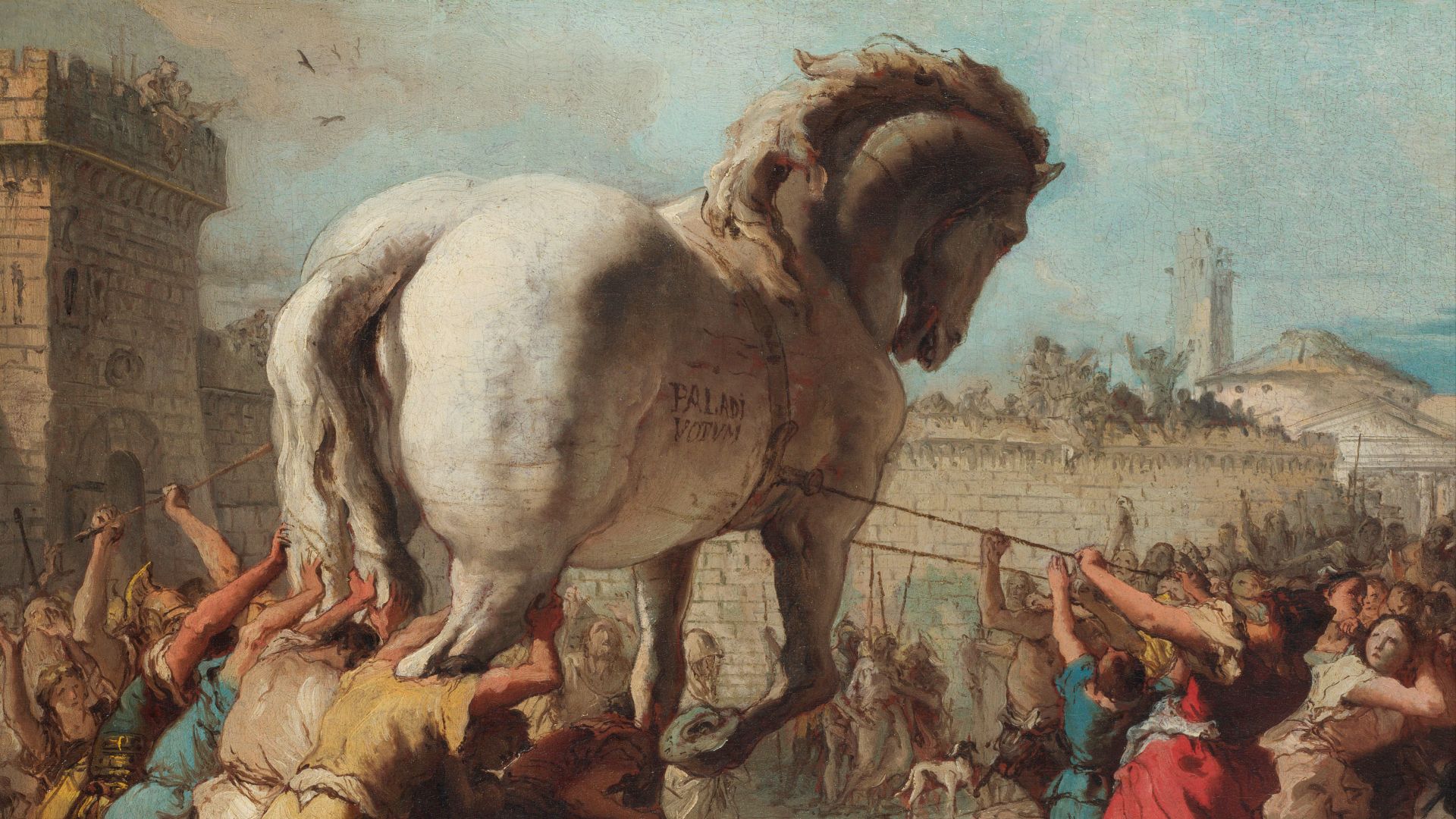 Giovanni Domenico Tiepolo on Wikimedia
Giovanni Domenico Tiepolo on Wikimedia
11. Beauty Fades, Character Lingers
Narcissus fell in love with his reflection and wasted away at the water’s edge, refusing both drink and food. This myth teaches us to avoid being so dazzled by the superficial that we don’t forget to appreciate the depths.
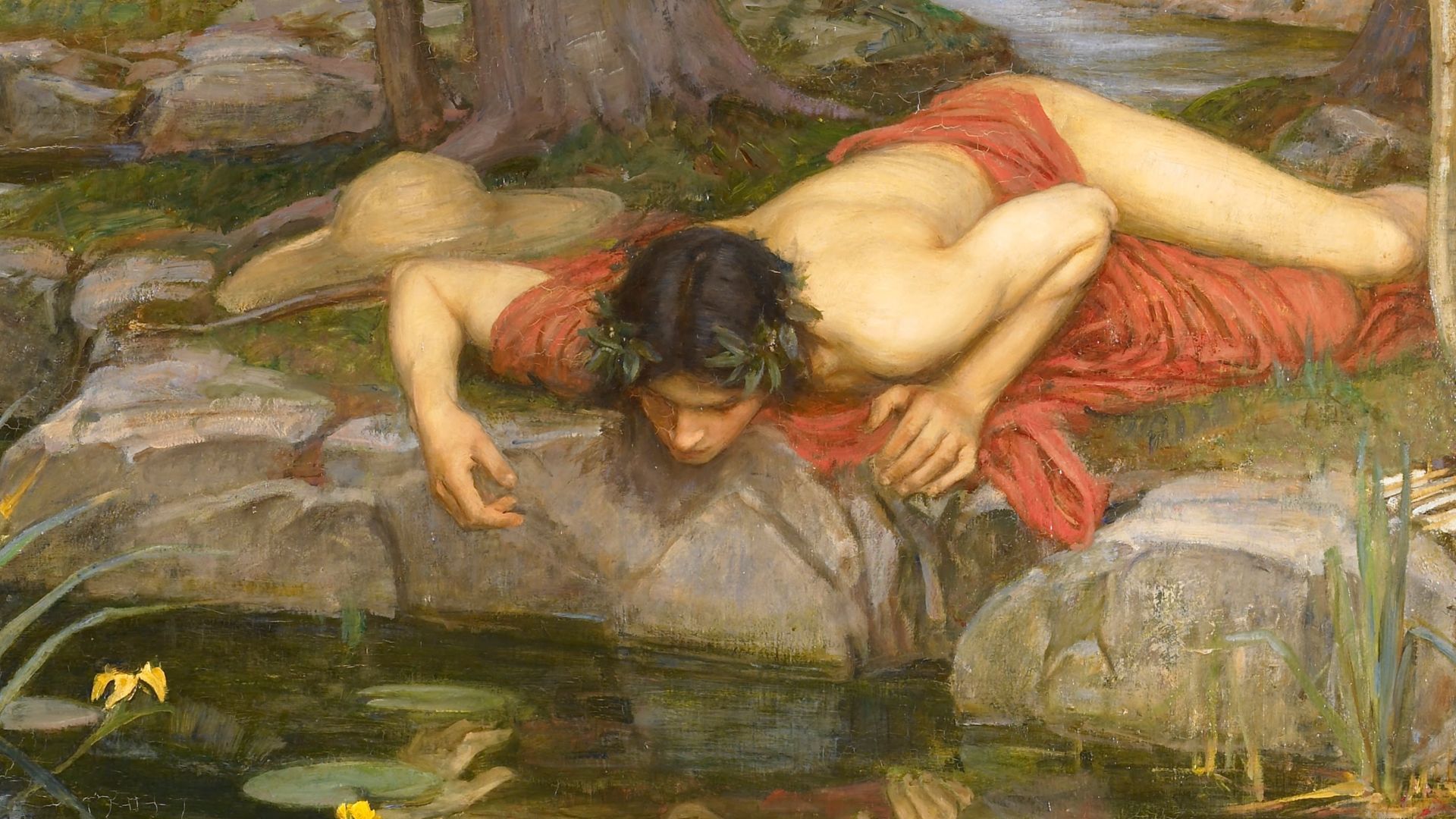 John William Waterhouse on Wikimedia
John William Waterhouse on Wikimedia
12. Some Actions are Irreversible
Heracles completed his twelve labors, a series of tasks given to him to atone for his crimes, but in the process, left chaos in other people’s lives. You can fix your mess and still leave fingerprints everywhere. In this case, even though Heracles achieved redemption through his feats, his wife and children remained casualties of his actions.
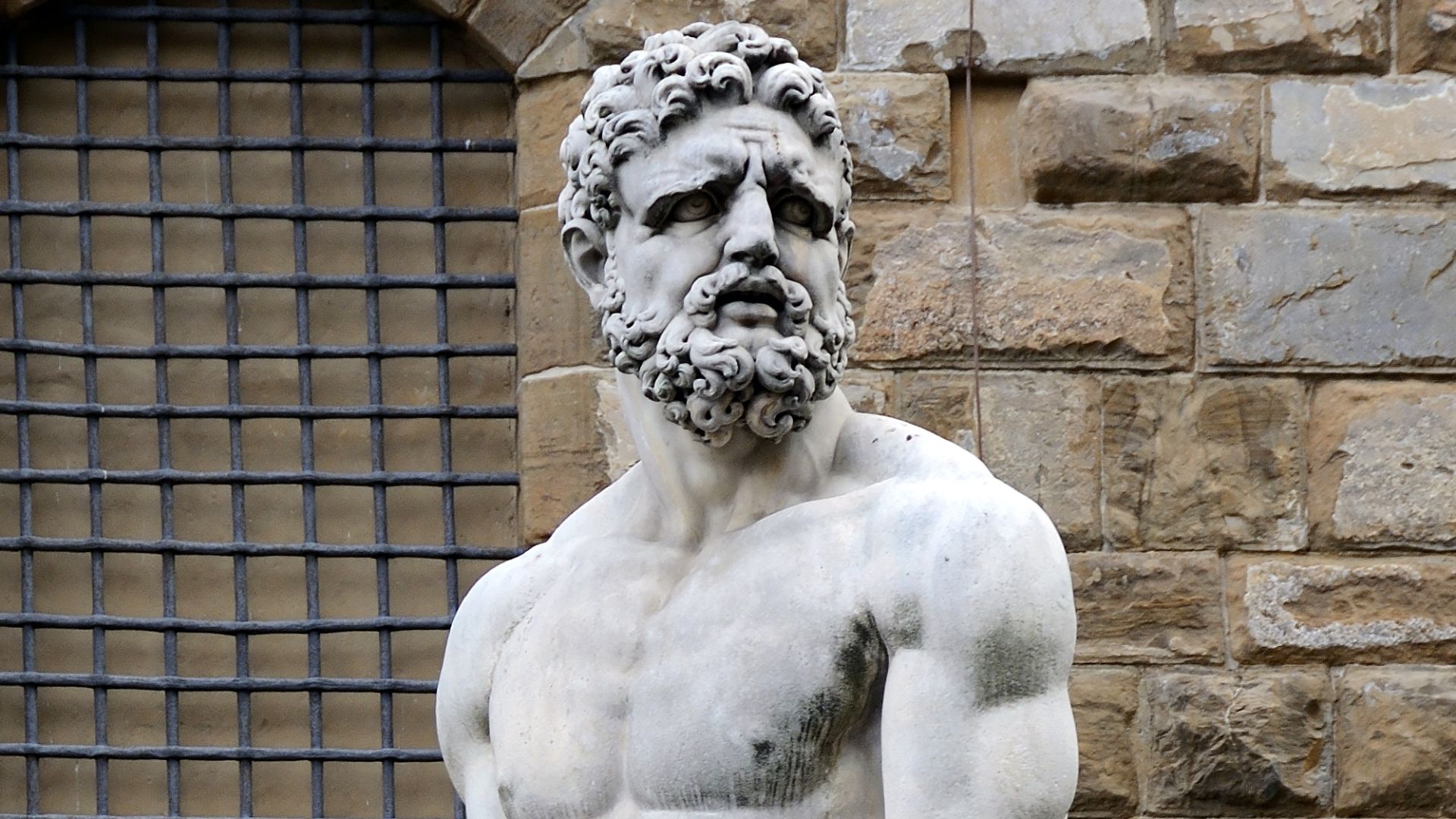 Livioandronico2013 on Wikimedia
Livioandronico2013 on Wikimedia
13. Arrogance Can Make You Forget What You Already Have
Bellerophon, a celebrated Corinthian hero, tried to fly to Olympus on the winged horse Pegasus. Angered by his presumption, Zeus sent a gadfly to sting Pegasus’ rump, causing Bellerophon to be thrown down to the ground, crippling him for life. He was doing fine as a hero on Earth, but his desire for more led to his downfall.
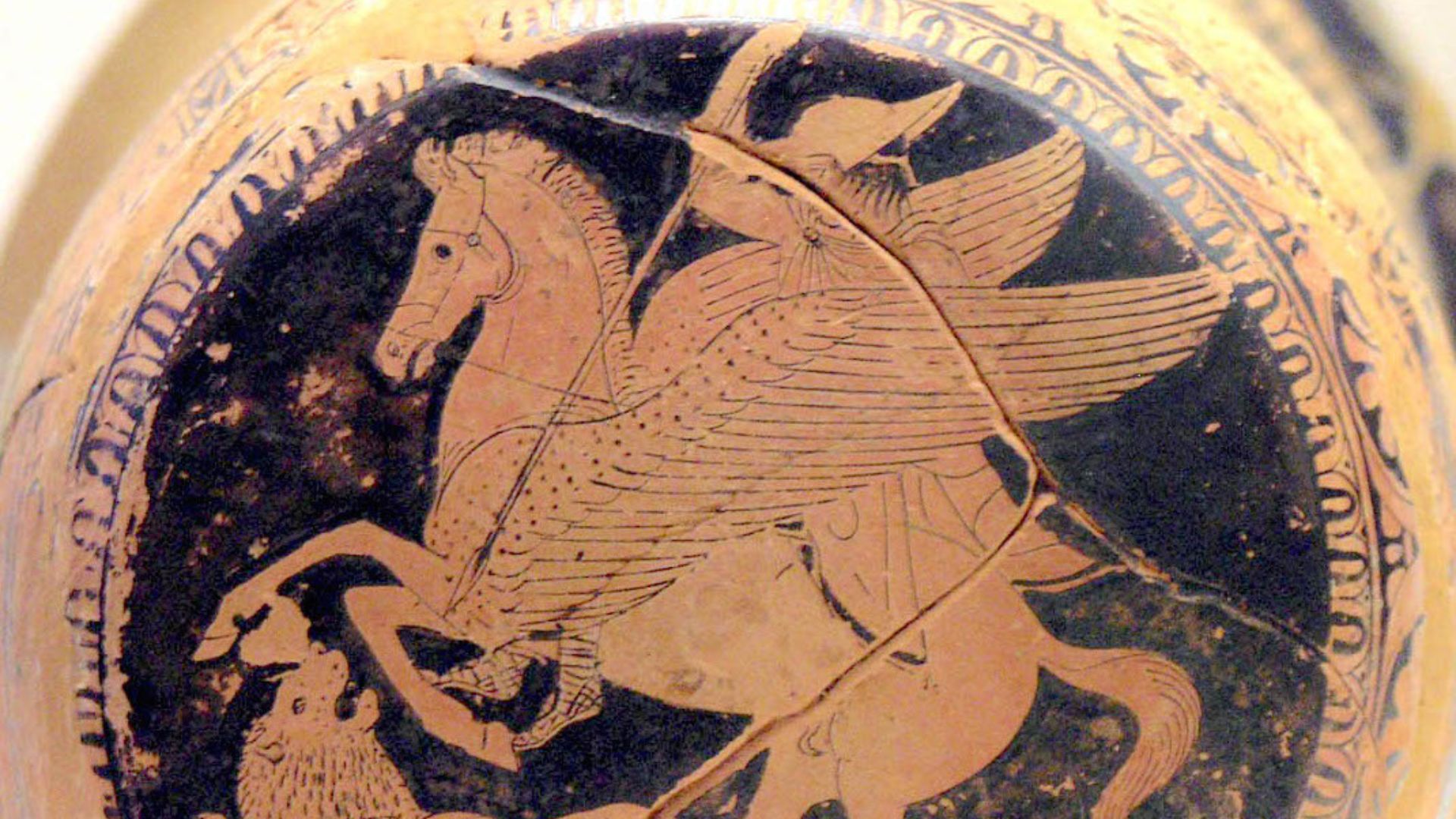 Unknown artistUnknown artist on Wikimedia
Unknown artistUnknown artist on Wikimedia
14. Grief Can Warp Your Mind
Orpheus, the talented balladeer, almost rescued his wife Eurydice from the underworld—almost. Hades allowed him to leave with her, provided he didn’t look back until they were both in the sunlight world beyond. And yet, his longing made him turn too soon. The Greeks didn’t shy away from showing how love and loss can make us sabotage ourselves.
15. Be Careful What You Pray For
Sometimes the gods grant your wish to teach you why you shouldn’t have made it. Ask for strength, receive hardships to strengthen you. Ask for wisdom, receive problems that challenge your intellect. It’s a sharp reminder that not every “yes” is a blessing.
 Guillaume Paumier on Wikimedia
Guillaume Paumier on Wikimedia
16. Tricksters Can Be Both Charismatic and Dangerous
Hermes was a thief, but also a divine guide. The lesson? Mischief-makers might hand you the map or steal your compass. Approach those charismatic advice givers with caution, particularly in this age of online influences and self-proclaimed gurus.
17. Nature Has Its Own Rules
Artemis punished those who disrespected the hunt, and Poseidon levelled judgment on those who abused the sea. The moral holds up thousands of years later: treat the natural world with reverence, or it will push back.
18. Power Comes With Responsibility
Zeus was notorious for his loose morals and wandering attention, giving rise to a whole roster of demi-gods that were constantly causing issues for mortals and gods alike. The lesson is simple and almost managerial: respect your station. If you’re in charge, stay engaged and focused on upholding the decency of your office.
19. Revenge Rarely Ends Well
The House of Atreus, a cursed lineage in Greek mythology, turned vengeance into an Olympic sport, although few if any emerged as victors in the end. This tragic tale of bloodlust and divine judgment serves as a warning that vengeance often backfires and sets in motion a chain of events that you can’t undo.
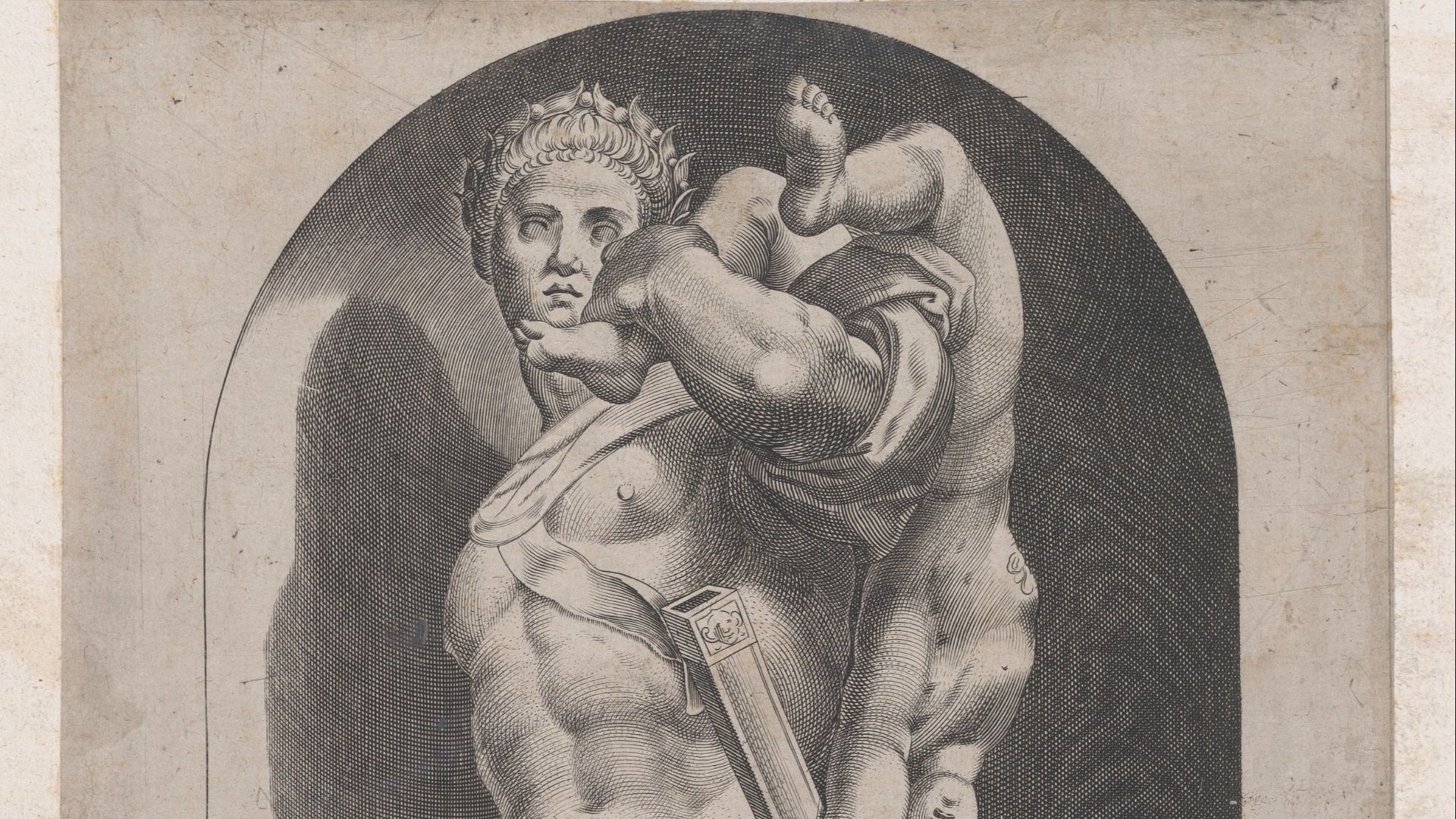 Cornelis Cort / anonymous on Wikimedia
Cornelis Cort / anonymous on Wikimedia
20. Even Heroes Have Flaws
Achilles, literally—although it was in his heel rather than his character. These myths remind us that perfection isn’t the point; it’s about how you manage your flaws. Achilles only had a single flaw on his entire body, yet it was his undoing.
KEEP ON READING

20 Weirdest Historical Objects in Museums
Check Out the Pickled Heart of a Saint. Museums carry…
By Rob Shapiro Oct 1, 2025
20 Ocean Mysteries We Still Haven’t Solved
Unanswered Questions Of The Ocean. The ocean covers most of…
By David Davidovic Sep 1, 2025
10 Phenomenal Mythical Creatures & 10 That Are Just Plain…
Legends Both Majestic And Peculiar. Do you ever wonder why…
By Chase Wexler Oct 1, 2025
20 Historical Predictions That Turned Out To Be True
Crystal Ball Moments In History. Do you wonder what it's…
By Chase Wexler Sep 1, 2025
10 Presidents Who Never Served In The Military & 10…
Commanders And Civilians In Office. Power can rise from very…
By David Davidovic Sep 1, 2025
20 Wars That Could Have Ended Much Sooner Than They…
Wars That Lasted Far Too Long. Wars are often remembered…
By David Davidovic Sep 1, 2025

